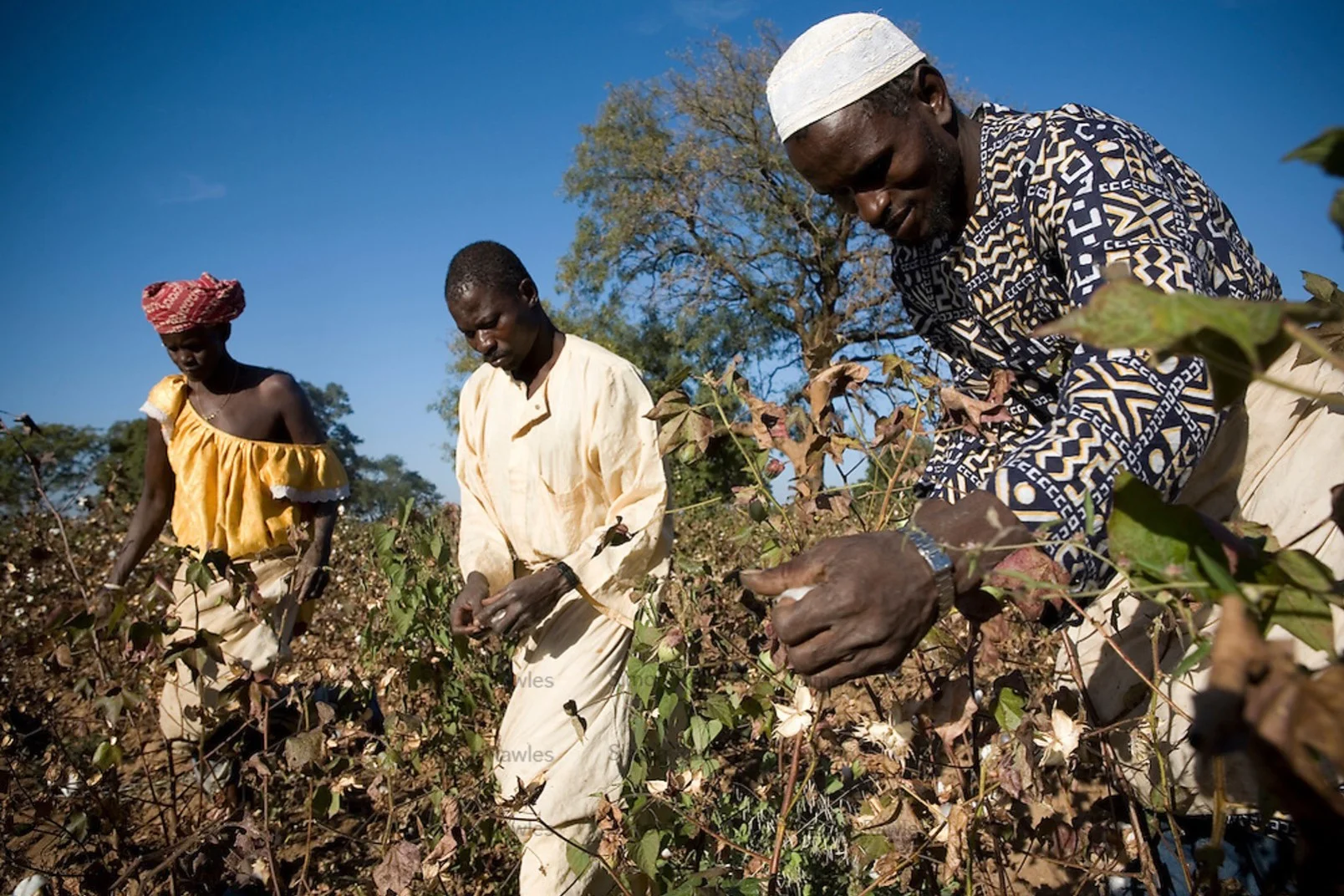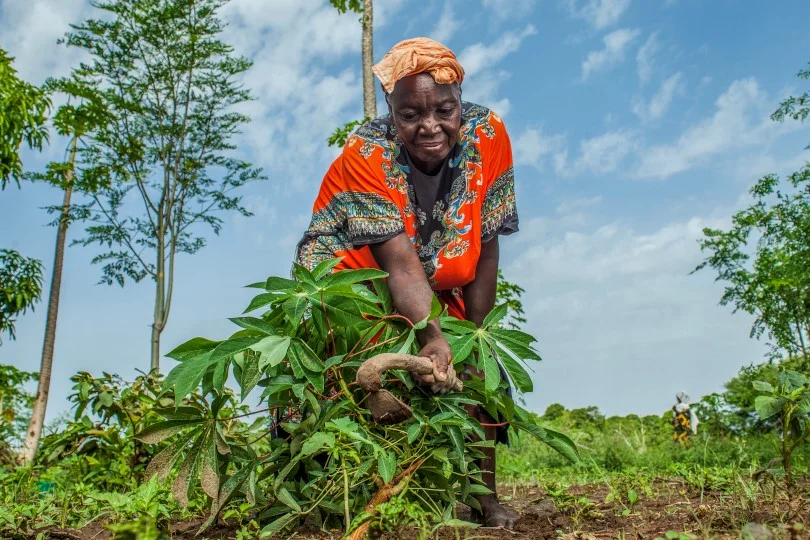Think Sustainability MOBIOM – Cotton in Mali

On the penultimate day of Fairtrade Fortnight, we will look at how Fairtrade works with cotton farmers in Mali and how they are developing to compete with richer cotton farms that receive subsidies in countries like the USA and China, as well as the European Union.
The Malian Organic Movement (MOBIOM) began as an umbrella organization for 73 village cooperatives and 6,547 farmers in the southern region of Sikasso. MOBIOM members grow Fairtrade organic cotton and produced a total of 1,054 tonnes of cotton, all sold at a price that has allowed farmers to improve their food security and develop their communities.
According to Fairtrade, MOBIOM’s mission is to “increase the incomes of members by improving the organization’s operational performance, increase production, promote Fairtrade and organic cotton production, and market members’ products.” It also aims to promote product diversification as a strategic response to the fluctuations of the cotton market and to adjust to the effects of climate change, such as unreliable rainfall.
How Does Fairtrade Work with MOBIOM?
When selling cotton to Fairtrade organic cotton buyers, farmers receive €0.50 per kg. This doesn’t sound like much, but it is double the money received from selling conventional cotton. By increasing the amount that farmers can sell their cotton for, the poverty rate of those living in this region has dramatically reduced, and farmers have better food security for themselves and their families. It also helps community members pay for healthcare, school costs, clothing, and investment in other income-generating activities.
Selling Fairtrade also means farmers receive the Fairtrade premium, which allows them to develop business practices and make improvements to the community. In the case of selling cotton, farmers get an additional €0.05 per kg to invest. There are a number of ongoing projects and some awaiting approval, but below are some that have been completed:
- Construction of 17 storehouses for secure storage of farm inputs and the separate storage of the organic cotton harvest.
- Construction of a literacy center to address the high illiteracy rate: over 80% of MOBIOM’s members are illiterate, which creates difficulties in the management of the cooperatives and particularly in the dissemination of information about production, markets, and contracts.
- Construction of a maternity clinic with a midwife – a huge benefit for pregnant women with complications, who would otherwise have to travel 25 km along mainly bumpy dirt tracks to receive treatment.
- Dozens of boreholes have been sunk and three large-diameter wells constructed to provide safe drinking water for villagers and their livestock. These projects have significantly reduced the workload of women who no longer have to carry out the time-consuming and strenuous task of collecting water.
- Construction of two cereal banks where members can store cereals and improve food security. Farmers have to sell cereals before they rot unless they have clean, dry, and secure storage facilities.
- Purchase and repair of primary school benches. Ideally, members would like to build more schools, but unfortunately, sufficient premium funds are not available.
 Albania
Albania Algeria
Algeria Andorra
Andorra Argentina
Argentina Armenia
Armenia Australia
Australia Austria
Austria Azerbaijan
Azerbaijan Bahrain
Bahrain Belgium
Belgium Bolivia
Bolivia Brazil
Brazil Bulgaria
Bulgaria Cambodia
Cambodia Cameroon
Cameroon Canada
Canada Chad
Chad Chile
Chile China
China Colombia
Colombia Costa Rica
Costa Rica Croatia
Croatia Cyprus
Cyprus Czechia
Czechia Denmark
Denmark Ecuador
Ecuador Egypt
Egypt Finland
Finland France
France Georgia
Georgia Germany
Germany Ghana
Ghana Greece
Greece Hungary
Hungary Iceland
Iceland India
India Indonesia
Indonesia Ireland
Ireland Italy
Italy Jamaica
Jamaica Japan
Japan Jordan
Jordan Kazakhstan
Kazakhstan Kenya
Kenya Kuwait
Kuwait Latvia
Latvia Lebanon
Lebanon Libya
Libya Lithuania
Lithuania Luxembourg
Luxembourg Malaysia
Malaysia Maldives
Maldives Mali
Mali Malta
Malta Mexico
Mexico Moldova
Moldova Monaco
Monaco Morocco
Morocco Netherlands
Netherlands New Zealand
New Zealand Nigeria
Nigeria North Macedonia
North Macedonia Norway
Norway Oman
Oman

